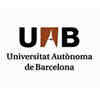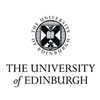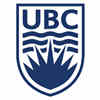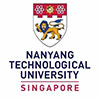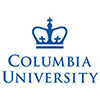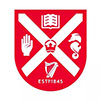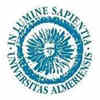英国弗朗西斯·克里克研究所:Leanne Li癌症神经科学实验室博士后招聘
英国弗朗西斯·克里克研究所:Leanne Li癌症神经科学实验室博士后招聘
Postdoctoral Training Fellow
This is a full-time, fixed term (4 years) position on Crick terms and conditions of employment.
The research group
1. A postdoctoral fellow position is available in the newly-established Cancer-Neuroscience Laboratory of Dr. Leanne Li, Francis Crick Institute (https://www.crick.ac.uk/research/labs/leanne-li), to study the interaction between cancer and the nervous system using genetically-engineered mouse models (GEMMs) of cancer, and GEMM-derived in vitro systems.
Project summary
Tumours are made up of both cancer cells and host cells that support the tumour’s growth. The dynamic interplay among different cell populations within the tumour microenvironment constantly shapes the behaviours of cancer cells and affects disease outcomes. Therefore, it is crucial to understand how cancer cells communicate with the body both locally and systemically. The immune system controls part of the conversation, and this piece of the crosstalk has been relatively extensively studied at the moment. However, the neuroscience aspects of cancer biology remain mostly unexplored.
Dr Li’s laboratory is interested in answering these key questions in the emerging field of cancer neuroscience: What are the roles of neuronal signalling pathways in cancer? Do cancer cells ‘communicate’ with our body through the nervous system, and if so, how? Finally, can we interfere with these ‘communications’ to treat cancer?
The research aims to understand the unique features of neuroendocrine tumours, and to elucidate the relationship between cancer cells and the nervous system. In this project, some of the specific aims could include but not be limited to:
· Understand how neuronal signalling activities affect cancer progression.
· Functionally characterize the complex interactions among cancer cells, the immune system and the nervous system
· Characterizing the unique molecular and metabolic features of neuroendocrine tumours, and identifying novel treatments basing on these vulnerabilities.
The Li lab employs genetically-engineered mouse models (GEMMs) and GEMM-derived tissue culture systems in conjunction with various cutting edge techniques to functionally interrogate the crosstalk between cancer cells and the body, focusing particularly on the nervous system. These techniques include CRISPR-mediated genetic editing, optogenetics, 3D organoid culture, co-culture, electrophysiology studies, advanced microscope imaging, etc.
Postdoctoral Training Fellows are expected to lead their own projects, contribute to other projects on a collaborative basis (both in the lab and with external collaborators) and guide PhD students in their research. The ability to work in a team is essential.
Key experience and competencies
The post holder should embody and demonstrate our core Crick values: bold, imaginative, open, dynamic and collegial, in addition to the following:
This position would suit candidates who have solid training backgrounds in one of the following fields: neuroscience, immunology or cancer biology. We are looking for creative, highly motivated candidates who have strong multitasking ability and can handle highly dynamic projects. Postdocs who are experienced in mouse studies, cell culture, optogenetics, cloning, advanced imaging and FACS are preferred; otherwise, candidates who are determined to learn new things and eager to acquire novel skillsets are also encouraged to apply. Finally, the applicants should have a good publication record, demonstrating strong critical thinking skills as well as capability to fully execute a given project independently.
Essential
· PhD in neuroscience, immunology, or cancer biology, or in the final stages of PhD submission
· Good knowledge and experience in mouse studies, cell culture, molecular biology (cloning, Western blots, etc.), histology (immunohistochemistry, immunofluorescence, etc.)
· Technical expertise in working with xenograft/transgenic mice
· Track record of writing papers as evidenced by publications or submitted manuscripts in referred journals
· Evidence of data presentation at scientific meetings
· Expertise in experimental design
· Ability to work independently and also capable of interacting within a group







